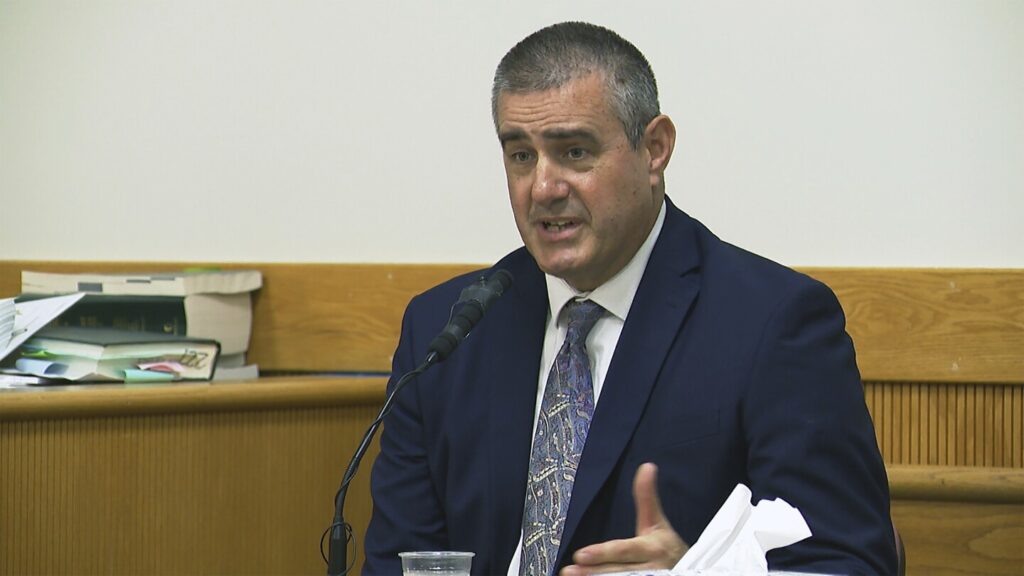
PROVIDENCE, R.I. — A former high school basketball coach in Rhode Island was found not guilty of second-degree child molestation and sexual assault charges, following a high-profile trial that scrutinized his controversial practice of conducting naked body fat tests on student-athletes. The jury, however, convicted Aaron Thomas of misdemeanor battery, a lesser charge, after deliberations concluded on Monday.
The verdict marked the end of a nearly six-week trial that captivated the local community and raised questions about the boundaries of authority in educational settings. Thomas, who served as a coach at North Kingstown High School for decades, was accused of asking male students if they were “shy or not shy” before instructing them to disrobe for body fat assessments.
The Trial and Verdict
Defense attorneys for Thomas argued that while the tests were inappropriate, they did not meet the legal criteria for sexual crimes. “We’d like to thank the jury for their attention, their hard work, and for their verdict. We are very satisfied that the jury saw the case as we saw it, no sexual intent whatsoever,” stated defense attorney John MacDonald outside the courthouse.
Prosecutors, however, painted a different picture, asserting that Thomas exploited his position to gain access to young boys under the guise of pseudo-scientific testing. “Above all else, this case is about the victims who suffered greatly behind closed doors,” said Attorney General Peter Neronha. He emphasized that the actions, regardless of intent, constituted criminal conduct.
Context and Background
The allegations against Thomas pertained to incidents involving two former students, one of whom was under 14 at the time, occurring in September 2000 and February 2002. Despite the span of Thomas’s career, the charges were limited due to Rhode Island’s three-year statute of limitations on second-degree assault, a restriction Neronha has advocated to extend to 10 years.
During the trial, Thomas admitted to conducting the tests on over 600 students, with approximately 80% removing their underwear during the process. He acknowledged that this was not necessary for assessing body fat, a point corroborated by body composition experts who testified that pinching near the groin is not scientifically supported for such measurements.
Reactions and Implications
The case has sparked a broader conversation about the responsibilities and limits of authority figures in schools. While the jury’s decision may have closed this chapter, it has left lingering questions about how similar situations should be handled in the future. The verdict also underscores the challenges in prosecuting historical abuse cases, particularly when statutes of limitations restrict legal recourse.
“We believe that what took place here was not just bad judgment, it was, and always has been, criminal conduct,” Attorney General Peter Neronha.
Thomas’s sentencing is scheduled for June 26, with misdemeanor battery carrying a potential one-year prison sentence and up to a $1,000 fine under state law. The outcome of this case may influence legislative efforts to amend laws governing the statute of limitations for sexual assault and related offenses in Rhode Island.
Looking Forward
As the community processes the verdict, attention may shift towards preventive measures and policy changes to protect students and ensure that educational environments remain safe and supportive. The case also highlights the importance of clear guidelines and oversight in school programs involving physical assessments.
Meanwhile, the broader implications of this case may resonate beyond Rhode Island, prompting other states to re-evaluate their legal frameworks and the support systems available to victims of historical abuse.
As the legal proceedings conclude, the focus now turns to healing and reform, with the hope that lessons learned will lead to positive changes in safeguarding student welfare.





